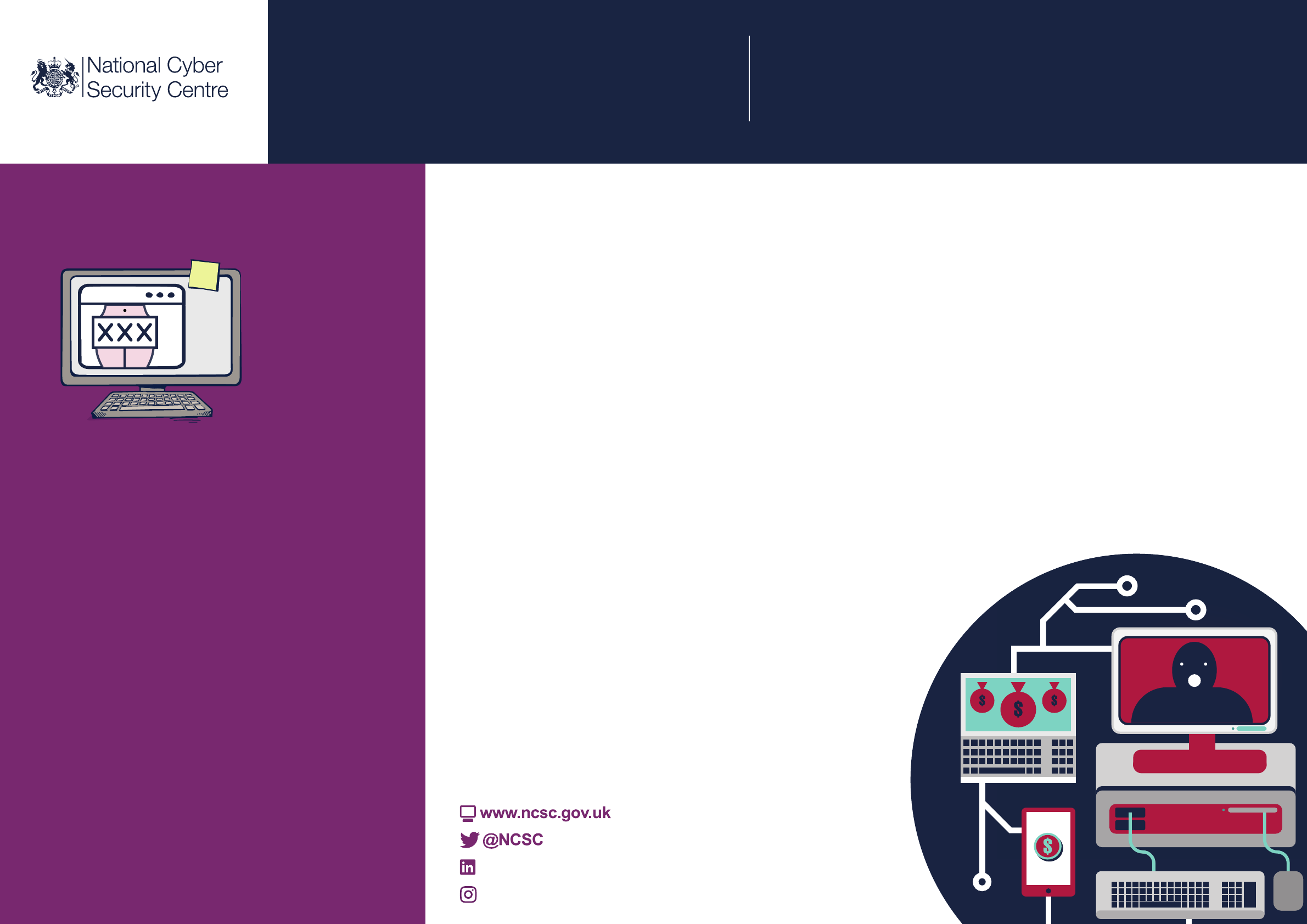
This guidance explains what to do if you've received an email that's trying
to blackmail you. The email may state that your login details have been
compromised, or may threaten to reveal some compromising information
(such as a video of you visiting an adult site). You can protect yourself by
following the steps below.
Sextortion phishing scams
How to protect yourself
A sextortion scam is when a criminal
attempts to blackmail someone, usually
by email. The criminal will claim they have
login details or a video of the victim visiting
an adult website, and will threaten to
disclose this unless the victim pays a
ransom (often in Bitcoin).
d
The criminals behind these attacks do not
know if you have a webcam, or know if
you've visited adult websites. They are
attempting to scare their victims into
paying a ransom, and will send millions of
emails in the hope that someone will pay.
They'll often include technical sounding
details to make the email sound
convincing. It may also include a
password the victim uses or has used.
d
Sextortion is an example of a phishing
attack, where victims receive emails that
try and trick them into doing the wrong
thing.
What is a
sextortion scam?
*****
What to do if you’ve received a threatening email
Don't communicate
with the criminal
As with other phishing attacks, our
advice is to not engage with the
criminal. If you have received an
email which you’re not sure about,
forward it to the NCSC's Suspicious
Email Reporting Service (SERS):
[email protected].uk, and then
delete it.
Should I pay the
ransom?
If you are tempted to pay the ransom,
you might be targeted with future
scams, as the criminal will know they
have a 'willing' customer.
Check if your accounts
have been compromised
Do not worry if your password is
mentioned. It has probably been
discovered from a previous data
breach. You can check by visiting
https://haveibeenpwned.com/
Change any passwords
that are mentioned
If a password you still use is included, then
change it immediately. For advice on how to
create good passwords, please visit
www.cyberaware.gov.uk .
If you've already paid
the ransom....
If you have already paid the ransom,
then visit Action Fraud for further advice
(www.actionfraud.police.uk).
© Crown Copyright 2020
National Cyber Security Centre
@cyberhq
